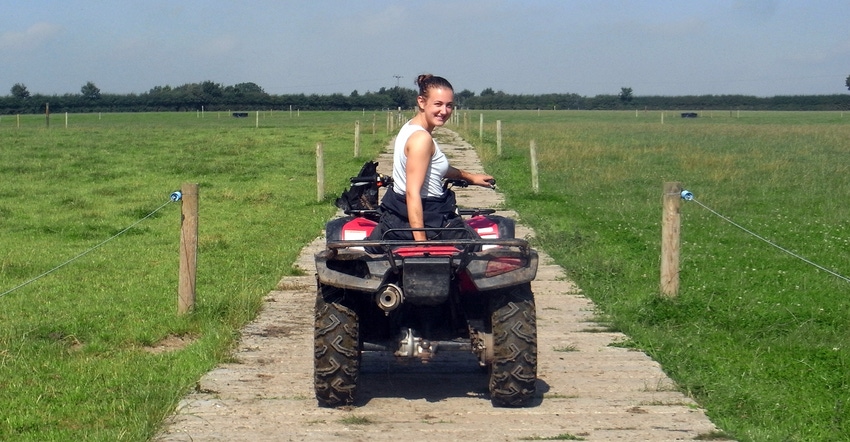
With high school graduations coming to an end, it signals the onset of summer. In rural communities, that means hardworking young people are out looking for that perfect summer job, and many will find it on a local farm. But one University of Missouri Extension agricultural economist says agriculture employers need to understand the labor laws associated with hiring young workers.
Joe Horner is an MU Extension agricultural economist and co-author of MU Extension’s Missouri Farm Labor Guide. “As farmers hire young workers, keep in mind the need to keep them safe, provide extra guidance and obey labor rules,” he says.
Horner offers the following guidelines when hiring young people to work for your farm or agribusiness this summer:
Assign appropriate tasks. Employees ages 16 and older may do any type of farm work, according to the Fair Labor Standards Act. However, restrictions apply to workers younger than 16. For example, younger workers may not do hazardous jobs unless permitted by an exemption.
Farmers may not realize it, but hazardous jobs include:
operating a tractor with more than 20 PTO horsepower
running a hay mower, hay baler or forklift
working in a yard, pen or stall that has a cow and newborn calf with its umbilical cord still intact
Horner says avoiding these situations will ensure a safe work environment for youth.
Know when youth can work. In Missouri, 14- and 15-year-olds employed during the summer — June 1 to Labor Day — may work only between 7 a.m. and 9 p.m. when school is out of session. They may work up to eight hours per day and six days per week to a maximum of 40 hours in a week.
Secure work certificate as needed. Hiring a 14- or 15-year-old requires a work certificate. The young person should request the certificate from an issuing officer, such as the student’s school superintendent or principal.
As part of the request, employers must submit a statement of intention to employ that includes a position description and information about the young person’s work schedule. The work certificate must be complete before the work start date. Keep work certificates and youth employee names, addresses, ages and daily work schedules on file for at least two years.
Understand wages. Missouri’s 2021 minimum wage is $10.30 an hour. In Illinois, it is $11 an hour, and in Kansas, it is $7.25 an hour. A quick online check can determine your state’s minimum wage. However, there are some exemptions. For example, the Fair Labor Standards Act exempts agricultural employers who record 500 or fewer “man days” during a given calendar quarter within the past calendar year.
Agricultural work conducted by an employee for at least one hour in a day counts as a “man day.” Also, the 1996 amendments to FLSA allow employers to pay a youth minimum wage of not less than $4.25 an hour to employees who are younger than 20 years old during the first 90 consecutive calendar days after initial employment. However, Horner suggests that employers pay at least the state’s minimum wage.
Understand family dynamics. In situations where children work for their parents, Missouri’s child labor laws vary. To be exempt from the state’s child labor laws, a parent or legal guardian must own the business where the child works and have direct control of the child during work.
Hiring a young person as a summer employee may have benefits that outlast a single summer, Horner says. “By hiring young workers, farmers can help train the next generation in agriculture and create a labor pipeline that can support their business in the future,��” he says.
For more information about hiring youths and managing a labor force, see the Missouri Farm Labor Guide.
About the Author(s)
You May Also Like






